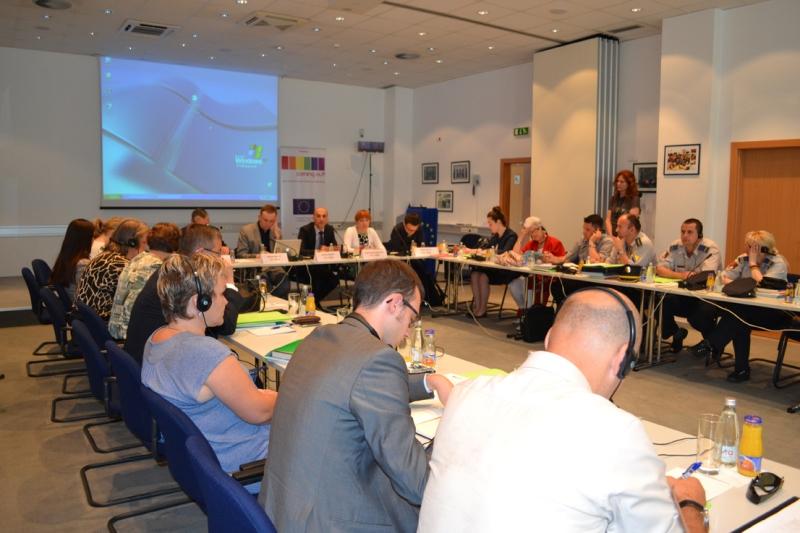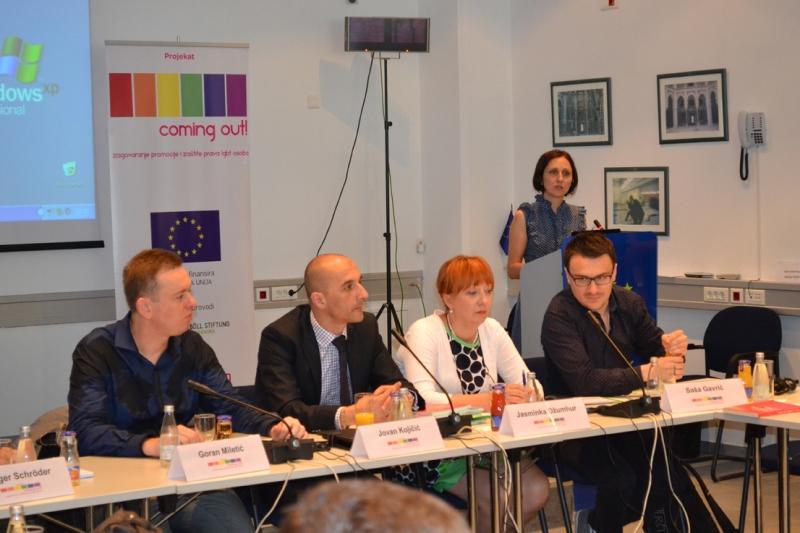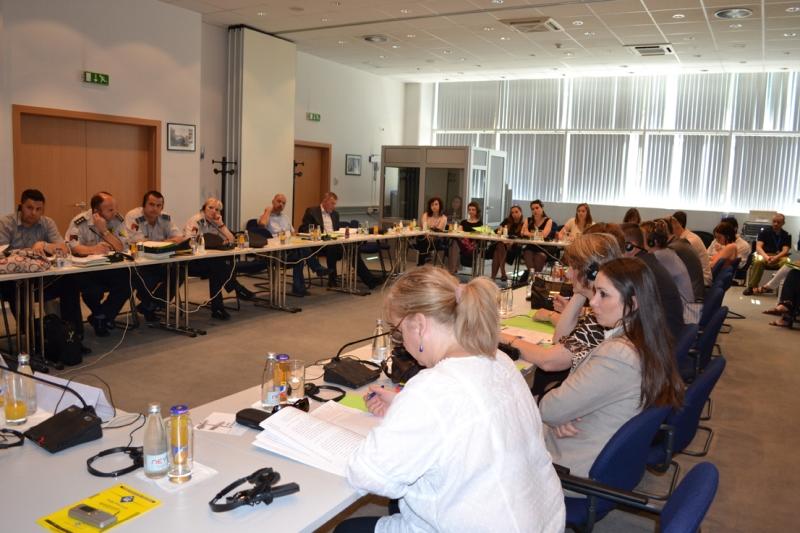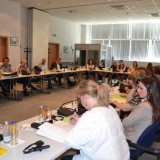With the main aim to promote and protect the rights of LGBT people, a roundtable “Good practices and policies in the fight against homophobia” was held on 20 June in Sarajevo opened a discussion on the position of LGBT rights in BiH, through the exchange of experiences and best practices from around the region. The event was part of the project “Coming out! Advocating promotion and protection of LGBT rights” that is implemented by the Heinrich Böll Foundation Office for BiH in partnership with the Sarajevo Open Centre and CURE Foundation, with financial support from the EU.
“I think there has been great progress in Europe over the past decade in terms of the fight against discrimination based on sexual orientation. I must remind you that the laws and policies of the EU are based on equality and non-discrimination in terms of sexual orientation, and that such discrimination is prohibited in the EU,” said Head of Operations in the EU Delegation to BiH, Holger Schroeder. He reminded participants that the European Parliament advised BiH that the anti-discrimination laws and policies should be better enforced. They expressed concerns about hate speech, threats, and harassment directed at LGBT people, and emphasised that efforts must continue to achieve an inclusive and tolerant society.
The roundtable was attended by representatives from the health, justice, education and civil society sectors in BiH who had the opportunity to hear experiences from the Adviser for Human Rights and Protection against Discrimination to the Prime Minister of Montenegro Jovan Kojicic, Programme Director for the Western Balkans in Civil Rights Defenders, Goran Miletic and Jasminka Dzumhur, BiH Ombudsman.
“When we talk about LGBT rights in BiH in terms of legislation, we can say that there has been little progress made in the sense that the laws on gender equality and non-discrimination are adopted, but these laws still have weaknesses that need to be improved when it comes to definition of their rights. The main weakness in the system is still the application of the laws, not only in terms of the LGBT population but generally when we speak about human rights. Although the law on non-discrimination was adopted in 2009, unfortunately it has not yet been implemented in practice. “, said Dzumhur.









